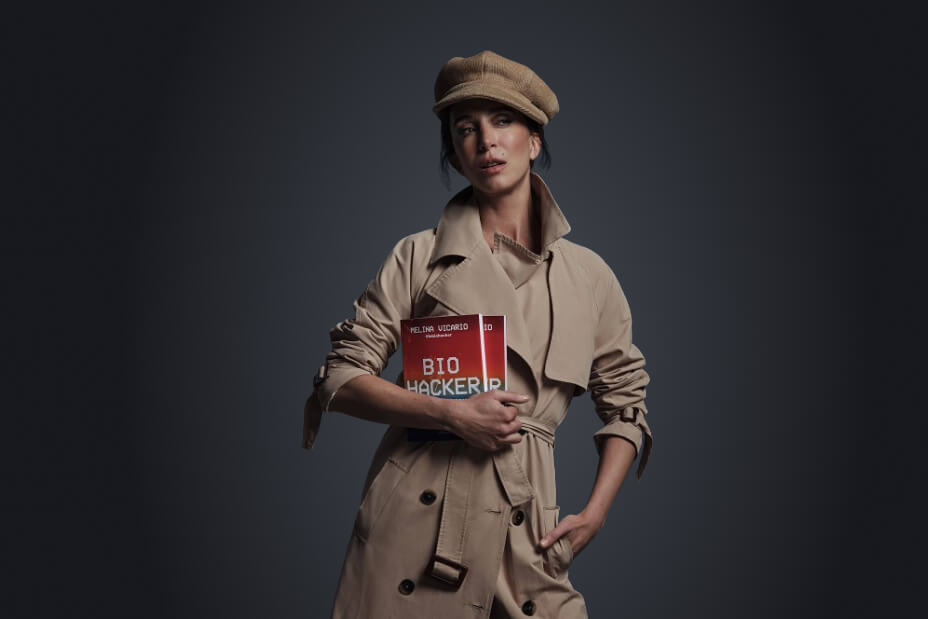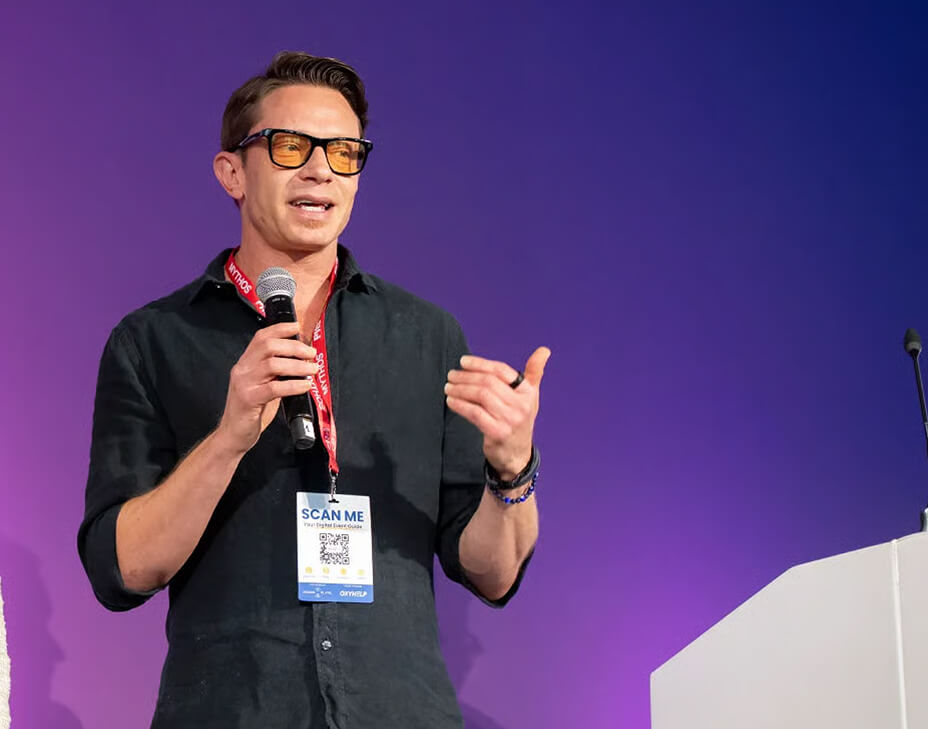A Different Look Into Biohacking That Puts the Focus on Community
Sara is a biohacker who helps health and wellness brands and shares her health journey on social media in order to inspire others to step out of their comfort zone and implement healthier lifestyle choices.
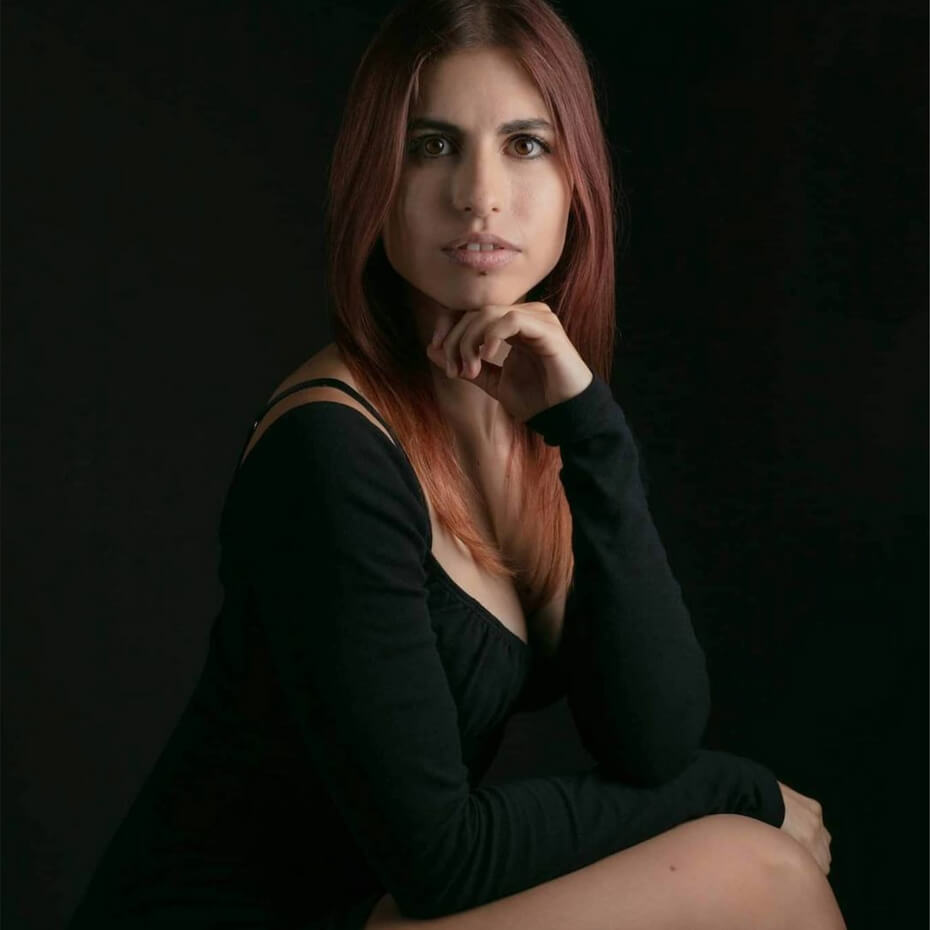
Sara Chaves is a biohacker who helps health and wellness brands with their social media strategy and shares her own health journey there.
Hey Sara, why don’t you start us off with a look back into what encouraged you to start with biohacking?
Well, I had a lot of health problems in the past. And I wasn't on a great path, to be honest. I used to go out a lot and I even worked during the night. I drank a lot back then and I was also on antidepressants. So one day I thought to myself, I couldn't continue like that. So I started reading about meditation and listening to different podcasts.
After that, I slowly started changing my habits. I started with meditation and then got more into researching health and implementing changes in my diet. I started exercising properly. Over time, things started changing. And one day I noticed I was like, oh, I'm actually a biohacker.
I love that, everything came to you naturally. It was just a matter of time.
I think the majority of biohackers end up on a similar path, having some sort of health problem and looking for a way to fix it. In my case, I was on antidepressants for 8 years. I only recently came off them completely. And obviously looking for the solution was what made me end up in biohacking.
Did you ever go through any lifestyle event that was a turning point for you?
When I first got into biohacking, listening to podcasts, and stuff like that, I was already changing some stuff. In the meantime, I went to the third biohacker London meetup and started helping with the organizing process.
I’ve always attended all of the meetups that eventually grew to the Health Optimisation Summit. That's how the summit was born because the meetup was just growing so much. And I definitely feel that having a community and talking with people every like six weeks, definitely had a big impact.
Every six weeks, we have a theme, sometimes it would be sleep, and then you would talk with therapists and functional doctors and other specialists. And then imagine if you have a problem at the time, you can share it and someone would be like - “Oh, I used to have that and I did this”.
This kind of inspired me to implement changes because having a community is completely essential when you're trying to make the changes.
.png?alt=media&token=159c26a3-dbc2-497c-a8bf-c00d07b20159)
Can you share a bit about your first experience with GlycanAge?
Working as a community manager for the Health Optimisation Summit, I heard about people testing their biological ages. Hearing their experiences got me curious, I guess I wanted to know if I was destroying myself.
I’ve been curious about biohacking tools for some time and was looking for a way to find out if everything I was doing was actually helping me. Were all of my lifestyle changes bringing positive results or not?
I was 29 the first time I got tested and my GlycanAge was 32, a year later, my GlycanAge fell down to 24. That made me happy because I knew I was on the right path. Obviously, it takes us years to develop new habits and to experience the benefits of healthy living, and I know nothing will provide me with instant results.
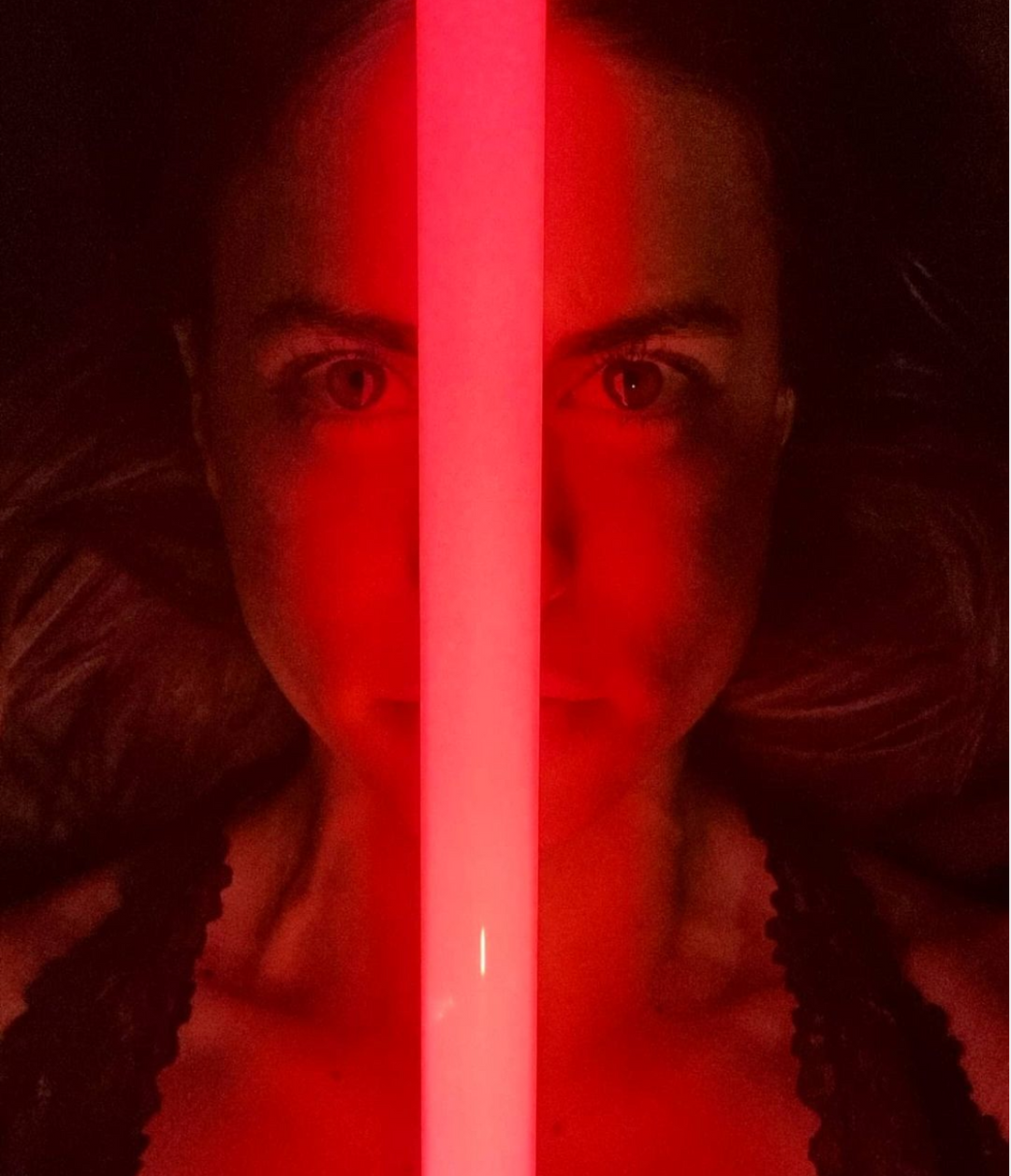
What kind of changes did you implement after your first test?
I started taking different supplements. I was very focused on my gut health since that was the worst part of my overall health.
When it comes to my diet, it was paleo. I did that for a while, I did a low sulfur diet for a month and a half. But it was to see if I can fix the imbalance in my gut. I didn't continue with that diet for long. I just did it for a bit to restore some of the high sulfur bacteria that I had in my digestion, so it lasted for a month and a half.
I wouldn’t recommend that diet to anyone, it was truly horrible. I switched to keto after that, but I noticed that my body would react better to a regular paleo diet, so that’s what I’m doing right now.
I think the reason why I changed my diet the first time was that I was on antidepressants. The keto diet is the best when it comes to anxiety. When I did keto for three months, I lost a lot of weight and that wasn't comfortable. So I ended up putting back some carbs in my diet that weren’t processed. And that's how I ended up doing the paleo diet a bit by accident, and I feel great since then.
Besides the diet, I religiously keep a morning and night routine. I meditate every day and I also started doing red light therapy.
What would you say is the most challenging part of living healthier while managing a busy lifestyle?
Honestly, I think it’s going through the supermarkets and looking at all of those sugary things and remembering how much you used to enjoy them. However, now when I eat something bad I feel like crap.
It’s important to experience these things first-hand. Once you get into biohacking, you can see how easily people around you could solve some of their problems with a healthier lifestyle. But until they actually try it for themselves and experience some benefits, they won’t listen.
You need to remember that the grass is greener where you water it. If I tell people that I meditate, work out three times a week and eat a paleo diet they think that it’s a lot, but I didn’t wake up one day and decided to implement all of these changes.
It went step by step and now I feel amazing and empowered. It’s crazy how people have all these misconceptions.
I still go out with my friends, the only thing that’s changed is that I don’t drink anymore. Everybody thinks I’m a weirdo, but at the same time, they salute me for being strong. At the end of the day, it’s all part of my self-care and as time goes, people find it less weird.
Nowadays, I’ll get messages from my friends who are not interested in biohacking saying they took my advice and meditated and that feels so rewarding.
What do you think about when you meditate, do you have a list of goals?
No, I don't have a list of goals. I have a really busy mind all the time, and I'm always just run, run, run, run. When you're always on the run, your mind is always busy and you can’t really concentrate on anything.
Meditation is kind of an exercise for your mind to help you concentrate on what’s actually important. I did notice that meditation helped me organize things in my mind because I used to feel all over the place.
My goal is to grow and improve myself. I also try to influence others around me, because what’s the point of me being healthy if everyone around me is sick?
What does your workout routine look like?
I used to just lift weights, so a bit of cardio, cycling and then I would lift weights at the gym. Recently, I've started taking martial art classes. So every Monday, I'll be going to my martial art class and then on Wednesday and Friday I lift weights.
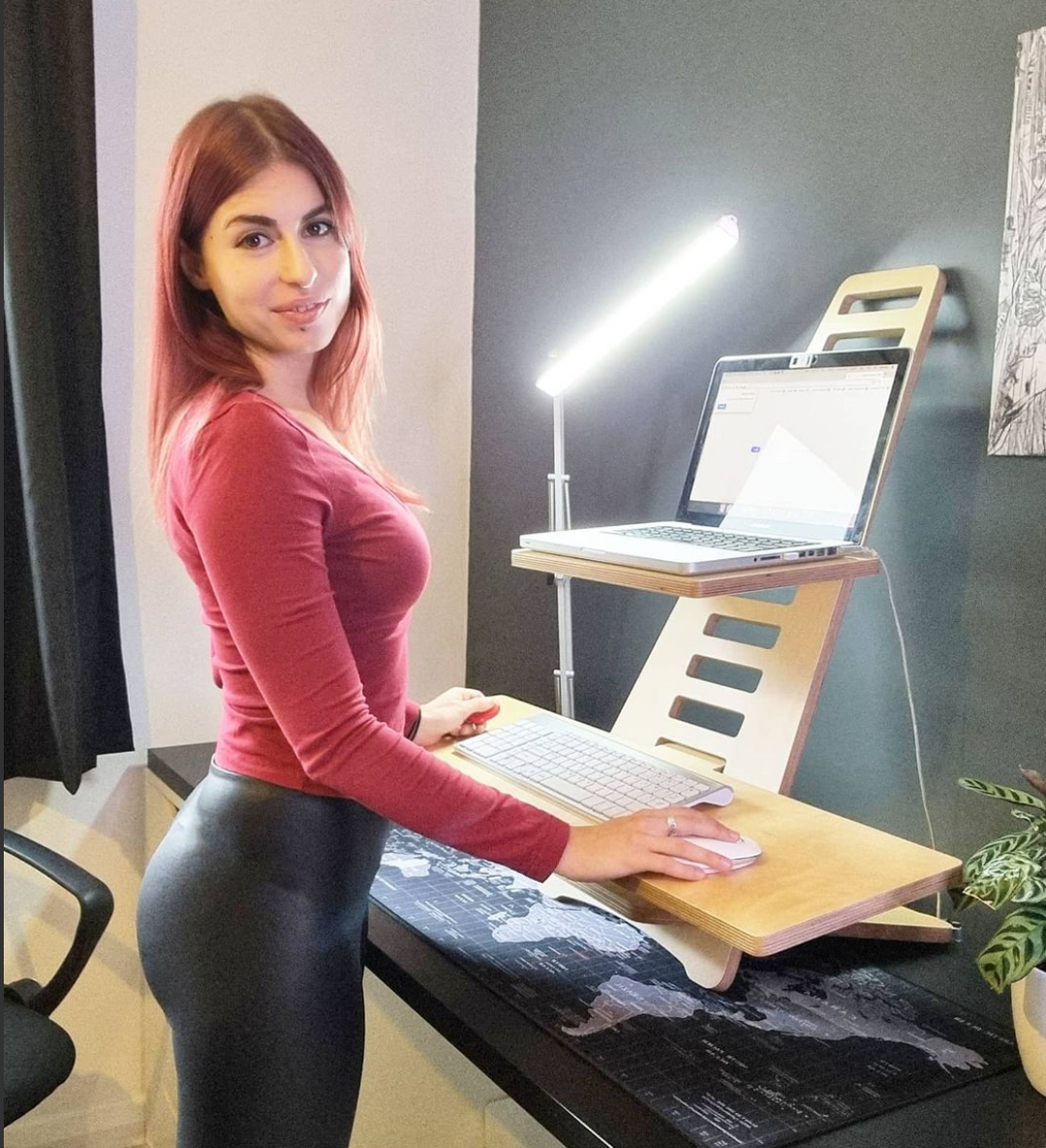
How do you track your progress?
In the beginning, it had to do with alleviating symptoms. For example, I still have a lot of menstrual cramps and I'm still trying to figure them out. I also have some difficulty with concentrating, which I'm still trying to work on.
Whatever symptoms I experience, I’m trying to find the reason and fix those issues. I try to be a better person every day. I know it’s not a big goal, but I don't think there will ever be an end goal for biohacking. I know that others like me may say that they want to live to a hundred and forty, but I don’t want to live a long life if it means I’ll lose energy.
For example, when I exercise, I do like the idea of having muscles and nowadays when I look in the mirror I think “Wow, I wasn’t expecting that” and I like it. I would also love to be able to do the splits. I’ve never been flexible like that, so I would like to do that.
In the end, I'm quite proud and happy that, for example, I don't need my antidepressants anymore.
A lot of people do ask me how I lost weight because I used to have 10,12 kilos more. And actually, I never wanted to lose weight at the time, I knew that I was a bit overweight but I didn’t have a particular goal weight.
I wanted to leave my antidepressants. So I was trying to find any solutions that would lead me to feel less depressed. Losing weight was just a happy accident.
Are there any self-care steps that you can share with us in order to inspire others?
I try not to be too harsh on myself, and I try not to compare myself with other biohackers too much. I don't run a gigantic company, while simultaneously launching a book and doing speaking engagements, nor do I take 5000 different supplements.
I’m doing my own thing at my own time. I’m growing slowly and steadily and making mistakes along the way. I could try to emulate someone else’s journey, but that’s not the point.
That’s so wonderful to hear. What do you do to destress?
Funny enough, I started doing something three years ago because I started a relationship with my boyfriend who is into fitness but not a hacker. He watches Netflix sometimes, which is something that I wasn't doing.
Now I give myself that time with him on the couch, just watching some Netflix. And I genuinely think that it’s quite good. I know other biohackers will say that it’s bad, because I’m not being productive, but sometimes it's good to just enjoy some time with him and relax.

